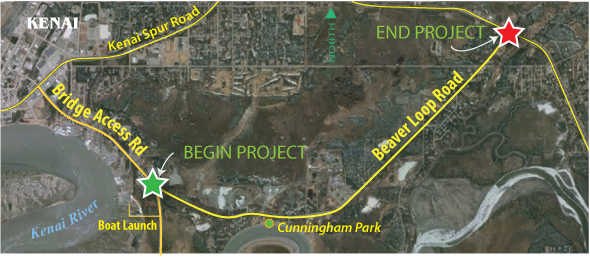Alaska’s yearly capital projects budget distributes state funds, as well as federal funds received by the state for local projects, to Alaskan municipalities and boroughs.
The capital budget for fiscal year 2015 — in effect during the calendar year from July 1, 2014 to June 30, 2015 — distributed $594.8 million from the state’s unrestricted general fund. About $70.6 million went to groups in the Kenai Peninsula. This money funded 94 projects, including transportation for the Nikiski Boys and Girl’s Club, a playground in Funny River, sidewalk improvements in Soldotna, wastewater plant renovation design in Kenai, dredging of a sewage lagoon in Seward, paving a visitor center parking lot in Homer, iPads for kindergarten students at Chapman Elementary school in Anchor Point, and facility upgrades for Kenai’s Leeshore Domestic Violence Shelter.
On February 5, 2015, Governor Bill Walker released the capital budget he proposed for fiscal year 2016. It reduced total capital project funding by $444.3 million for a total of $150.3 million.
About $9.9 million was given to four projects on the Kenai Peninsula including improvement of water storage and distribution infrastructure in Homer, two road projects in Kenai, and one in Seward. Only the $1.9 million given to Homer came from the state’s unrestricted general fund. The three road projects – which will provide maintenance to state-owned roads, including the Kenai Spur Highway and Beaver Loop Road — will be receiving federal dollars through the state capital projects budget. The city of Kenai will assume ownership of Beaver Loop Road after the state finishes repaving and shoulder-broadening it, expected in 2020.
Kenai city manager Rick Koch said that the drastic budget cuts would not cause any emergencies in Kenai.
“There are some things we’d like to do that we’re going to be moving forward on, at least not right now for a year or two,” Koch said. “But there’s not anything we have that’s ongoing that we’re going to have to stop.”
Among the projects that Kenai has put off due to state budget cuts, Koch listed Kenai recreation center renovation, designs for expanding the senior center, the paving of gravel roads.
The governor’s amended budget will be approved, and likely amended, by the state legislature before it is enacted and goes into effect on July 1, 2015. Walker has already amended the budget once since its introduction, adding funding for the state ferry system, Medicaid, housing assistance, and community jails. Koch is not optimistic about the possibility of legislators bringing more money to Kenai projects.
“All those requests have been submitted to the legislature, but frankly, I think there’s little opportunity to get a lot of stuff funded this year,” Koch said. “It doesn’t really make a lot of sense to put pressure on our legislators or other legislators to fund capital projects, because frankly the realistic view is there’s not going to be a lot of capital money this year. So we’re all sort of waiting if the Governor agrees with the legislature regarding what level of capital funding he would allow to be put into the budget with the risk of triggering vetoes on projects.”
Kenai finance manager Terry Eubank said that city sent its funding priorities to Juneau this year according to its usually procedure.
“We go through a process every year where we as a community put forward what our legislative priorities are,” Eubank said. “We go through a council process that adopts our legislative priorities, then the city manager generally forwards those priorities not only to the governor’s office, but to our legislative contingent… That usually happens in late fall, so it can be down there prior to the governor issuing his proposed budget, and also before the legislature goes into session.”
Eubank said that the city completed last year’s legislative priorities just around the time oil prices were starting to drop, but that the likely decrease in state budget wasn’t a concern of theirs at the time.
“I don’t know that it would ever really change our priorities list,” Eubank said. “We’ll put our priorities out in fat years or in lean years. What we would expect to get funded would differ, but it wouldn’t necessarily change what our priorities are.”
Koch had a similar attitude toward decreased funding to the city of Kenai. “We’re not going to lose anything,” he said. “The appropriations we received in past budgets, they’re not at risk. This is just going to be a pretty tight year for any additional program funding. And we’ve got plenty to keep us busy.”
Reach Ben Boettger at ben.boettger@peninsulaclarion.com.
